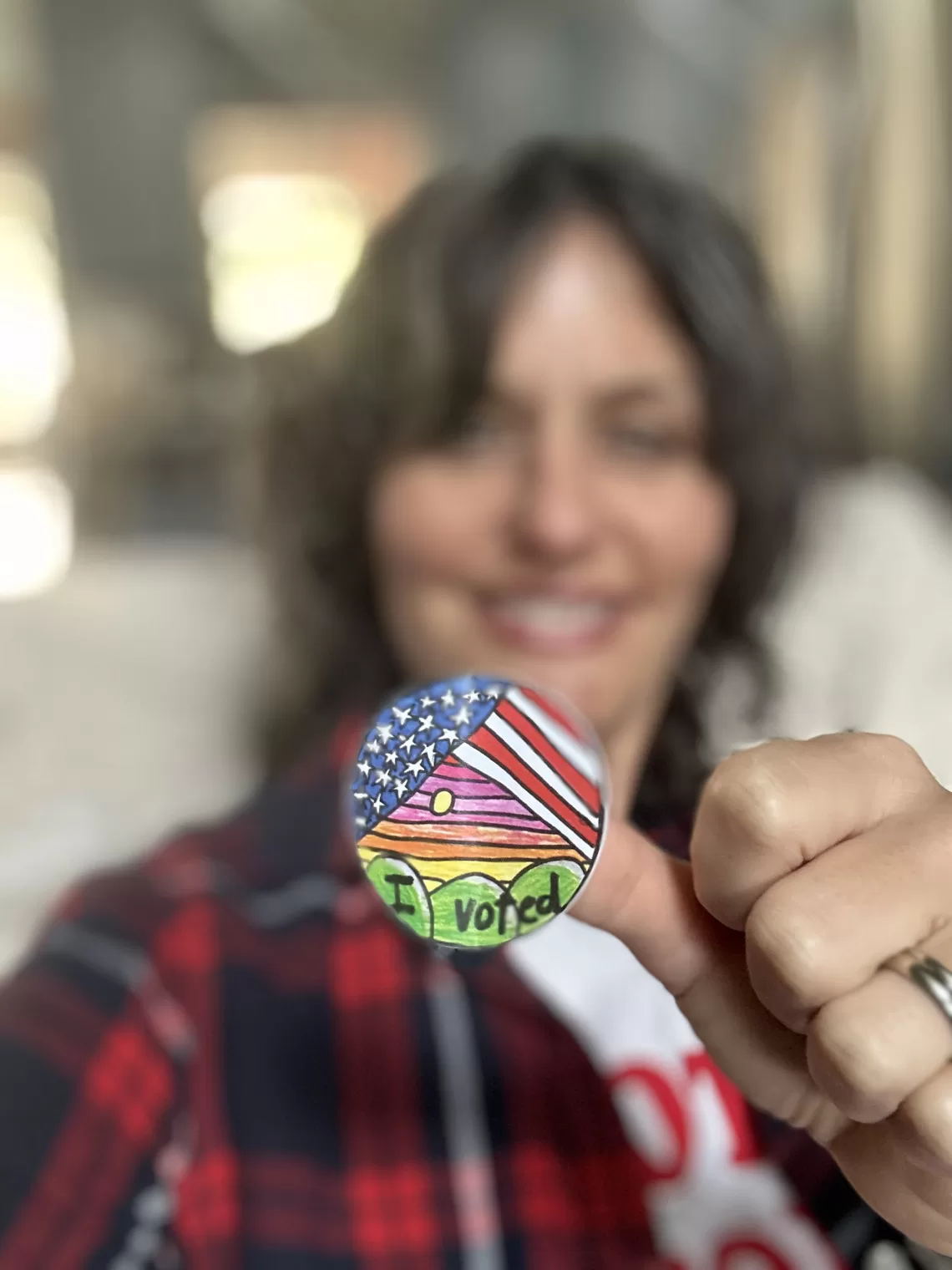Show up to wherever you are supposed to be on Wednesday morning. That’s how every article written about parenting during an election should start and end. And that’s what we should all do tomorrow morning. Show up. On time. Ready to roll. Whether your candidate wins or loses, prepare yourself today to show up tomorrow.
As I read my news feed this morning, I was greeted with a consistent message: the most important election day of our time is here, it’s existential, and it’s going to be problematic for half of the country regardless of how it turns out. I’m not interested in telling you how to vote or even dissecting why politics plays such a salient role in American identity. I want to talk about the best thing you can do for your family tomorrow and also document my admiration for routines.
In 2016 I taught the High School U.S. Government class for the first time. Despite the contentious nature of the election that year, we managed to have a healthy dialogue in our class. We hosted a high school election watch party with no issues. Our little world was safe and respectful. We had to end the watch party before the election was called, but I was glued to the TV after everyone left.
The next morning as I got ready for school, I knew we needed to approach the day differently to sustain our safe and respectful community. Teenagers are a passionate sort, and disappointments and celebrations alike can have a destabilizing effect. Though we had a very special class discussion that helped frame the next four divisive years for our young, passionate students, several didn’t reap the benefits. Why? Because they weren’t there. Their parents had called into work and they had called into school—in response to their disappointment.
Not only did they miss out on the meaningful conversation we had in class, but they also missed out on one of the most powerful therapeutic tools at our disposal: routine. Routines give us a sense of control, set us up for good sleep and normal circadian rhythms, and free our working memory for more important tasks. But I don’t think any of those factors can claim credit for the benefits associated with routine.
What can a routine do?
Doing the same thing we did yesterday—whether yesterday went how we wanted or not—is like making a big, loud proclamation to the circumstances around us that we are the boss, not them. It is inherently victorious.
Routines are cumulative in nature. Like a snowball rolling down a hill, the more we stick to our routines, the stronger they get. The stronger they become, the more they support us.
When our kids see us function as stable individuals, they are stabilized. Going about our normal routine communicates stability, faith, and hope. It’s the most loving thing we can do for our children.
Every morning of my childhood, I woke up to see my mom sitting on our couch with a cup of coffee and an open Bible in her hands. In 2000, our family went through a tumultuous experience that changed our lives dramatically. The house, the couch, and the chaos inside were too distracting. She moved her routine outdoors and started reading her Bible on her porch swing. She told us later that out there on the swing she was reminded that even when the foundations are shaking, God is still on His throne. She credits this revelation and the time on the porch swing for her best worst year. There was more to it than just the routine, but would she have had those experiences if the routine wasn’t there in the first place?
Children are far less interested in who wins the election tonight than they are in their parents’ stability. For those wondering what happens next and how to keep things stable for your child, I have good news. You have more control over that than you have over the national election. So enjoy dinner with your family tonight. Wake them up like you normally would tomorrow. And get to school and work on time. It might just be the most important thing you do this week.






whoah this blog is excellent i like studying your posts. Stay up the great paintings! You know, lots of persons are hunting round for this info, you can help them greatly.
Your style is refreshing and original.
Your blog consistently captures my attention, compelling me to devour every word from beginning to end.